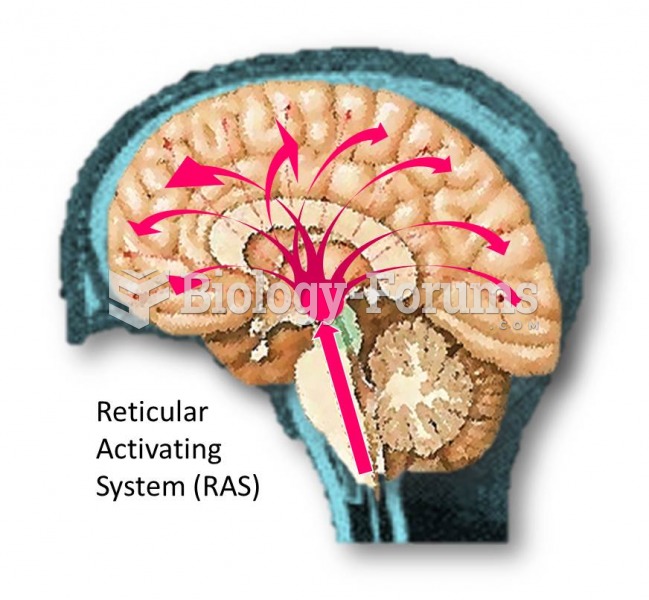|
|
|
Hyperthyroidism leads to an increased rate of metabolism and affects about 1% of women but only 0.1% of men. For most people, this increased metabolic rate causes the thyroid gland to become enlarged (known as a goiter).
Cutaneous mucormycosis is a rare fungal infection that has been fatal in at least 29% of cases, and in as many as 83% of cases, depending on the patient's health prior to infection. It has occurred often after natural disasters such as tornados, and early treatment is essential.
Increased intake of vitamin D has been shown to reduce fractures up to 25% in older people.
On average, someone in the United States has a stroke about every 40 seconds. This is about 795,000 people per year.
The immune system needs 9.5 hours of sleep in total darkness to recharge completely.
 Cerebral angiography. The four angiograms each reveal the distribution of blood vessels supplying th
Cerebral angiography. The four angiograms each reveal the distribution of blood vessels supplying th
 Filter in the vena cava prevents an embolus from traveling to the heart, lungs, or brain; A, Greenfi
Filter in the vena cava prevents an embolus from traveling to the heart, lungs, or brain; A, Greenfi





